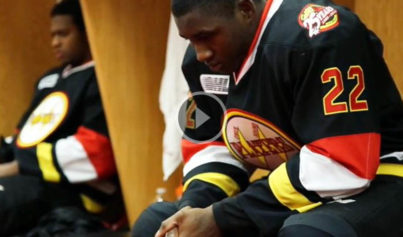The National Hockey League announced Friday that they are cancelling more regular-season games and the All-Star game because the NHL and NHLPA have been unable to reach a new collective bargaining agreement during the lockout.
The latest cancellations have cost the league a total of 422 regular-season games and the annual Winter Classic, which was canceled earlier in the month.
If a deal does not get reached between the two parties any time in the near future, some fear that the next round of cancellations could be the entire NHL season.
NHL commissioner Gary Bettman said Wednesday that the differences between the two sides during the lockout have cost the league roughly between $18 to $20 million a day.
“To expect our best economic proposal to get better as the damage continues to increase isn’t particularly realistic,” Bettman said.
The players union presented a new proposal to the league of Wednesday, which was rejected, forcing the players and owners to renegotiate a deal that would work for the both of them.
In the proposal of Wednesday, the union offered to link the players’ share to revenue in the league’s preferred percentage-based system, but there were still some major concerns from some of the owners about the offer.
ESPNNewYork.com reports that the owners’ side reportedly objected the amount asked for in the union’s Make Whole plan to honor existing contracts. The union is now asking for $393 million, compared to the league’s last offer of $211 million. The provision also guarantees the players share to some degree.
Starting in Year 2 of the provision, the players cannot make less in share than the previous year. They are protecting themselves against the drop of the Canadian dollar if that should happen.
Players are frustrated with the continual rejections and some have even contemplated decertification as a viable option moving forward. If the players choose to decertify from the union, the players will be able to file an antitrust lawsuit against the NHL.
“After watching the other sport leagues go through labor disputes last year, it is apparent that until decertification is filed, there will not be any real movement or negotiation,” Sabres goaltender Ryan Miller told The Globe and Mail.
Miller and his colleagues refuse to take a bad deal that does not meet their demands or have at least some of their terms. They feel that decertification will be their only option left.
“Decertification is a push back and should show we want a negotiation and a fair deal on at least some of our terms,” Miller said.

